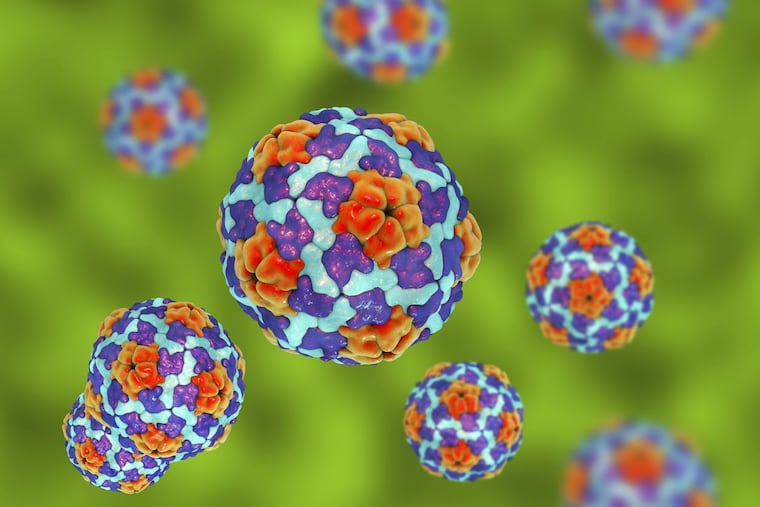Philly officials announce sharp drop in Hepatitis A cases after declaring health emergency
Health officials said the city has seen a 90% drop from a peak of almost 120 cases in August to nine cases in December.

Less than six months after declaring a public health emergency from an outbreak of hepatitis A, Philadelphia health officials have announced a sharp decline in cases, thanks to measures like a city-led vaccination campaign and installation of public toilets.
Health officials said Friday that the city has seen a 90% drop from a peak of almost 120 cases in August to nine in December.
After seeing less than 10 cases a year from 2011 and 2016, the city experienced an outbreak culminating in 426 cases in 2019, including four deaths. About 60% of the cases involved individuals who were homeless, drug users, or both.
» READ MORE: Philadelphia officials declare health emergency over hepatitis A outbreak
“The most successful strategy to combat these outbreaks is an intensive vaccination campaign, which we implemented and appears to have worked,” said city Health Commissioner Thomas Farley. “While we are excited to see these results, there is much more work to be done to ensure that the infection does not flare up again.”
According to a new report issued by the city, more than 12,000 vaccinations were administered and over 7,000 hygiene kits were distributed to high-risk individuals and city and community partner agencies that service high-risk populations, including the Office of Homeless Services and the Department of Behavioral Health and Intellectual disAbility Services. Hygiene kits included hand sanitizer, soap, antimicrobial body wipes, waste bags, and condoms, as well as information on hepatitis A prevention.
Officials said vaccinations will continue to be provided through the city’s partner agencies and health-care providers.
The city also opened two public restroom trailers and a hand-washing station in Kensington — a neighborhood with a high concentration of homeless people in addiction — to stop the spread of the contagious disease, which is caused by contact with feces.